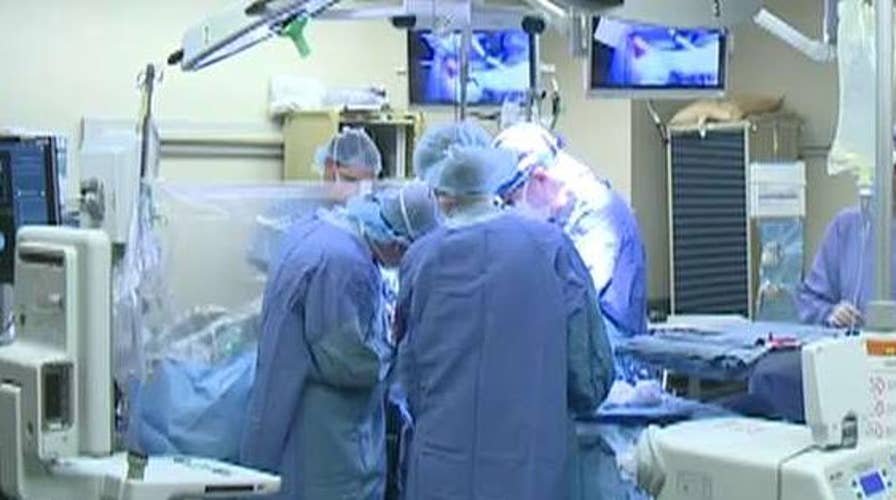Studies: Prostate cancer patients do better with surgery
Findings compared with radiation treatment
There is a new major development within the realm of prostate cancer research and treatment. An analysis of more than a dozen studies shows that prostate cancer patients do better with surgery as opposed to radiation therapy. This is especially true for men with localized prostate cancer.
The findings show that patients treated with radiation are twice as likely to die from prostate cancer. In addition, those treated with radiation are 1.5 times more likely to die from prostate cancer sooner than surgery patients.
“In the past, studies that have compared the success rates of surgery or radiation have been confusing because of their methods," Dr. Robert Nam, senior study author, said.
"We have evaluated all the good-quality data comparing surgery and radiotherapy, and the results are pretty conclusive; in general, surgery results in better mortality rates than radiotherapy," he said.
Prostate cancer key statistics
? Prostate cancer is the most common non-skin cancer in the United States.
? It is estimated that in 2015 in the United States, there will be about 220,800 new cases of prostate cancer and about 27,540 deaths from prostate cancer.
? About 1 in 7 men will be diagnosed with prostate cancer during his lifetime.
? About 6 cases in 10 are diagnosed in men aged 65 or older. The average age at the time of diagnosis is about 66.
? About 1 in 38 men will die of prostate cancer.
? One new case occurs every 2.4 minutes and a man dies from prostate cancer every 19.1 minutes.
Researchers at the University of Toronto in Canada conducted an analysis of 19 studies comparing the success and survival rates of surgery versus radiation therapy for prostate cancer. The study included around 120,000 men who had been diagnosed with localized prostate cancer. Of those men, all had either been treated with surgery or radiation therapy. The results showed that those who were treated with radiation were twice as likely to die from prostate cancer and about 1.5 times more likely to die sooner compared to those treated with surgery.
The researchers concluded that for the treatment of localized prostate cancer, surgery is more effective. Moreover, they also determined that surgery provides a more optimal long-term prognosis; men with prostate cancer who are treated with surgery live longer.
When it comes to treating prostate cancer, surgery, or a robotic prostatectomy is the only form of treatment that completely removes the entire prostate. The surgery is performed by a trained and skilled surgeon through the use of a computer-enhanced robotic surgical system positioned near the operating table. The Da Vinci Robotic surgical system is made up of three major components, which include a vision system with high magnification and resolution, robotic arms and instruments, and a console to provide the surgeon with a view of the operative field and control the instruments.
A robotic prostatectomy is recommended for men healthy enough for surgery, and whose prostate cancer has been confined in the prostate (Stage T1 or T2 cancer). There are many benefits of choosing surgery for prostate cancer including that it provides greater accuracy when determining the stage and grade of the cancer. This information allows doctors to come up with the best long term treatment plan for each individual patient. Patients who choose surgery over radiation therapy also tend to experience a better quality of life post-treatment.
Pros of robotic prostate surgery:
? Proven to reduce prostate cancer death rates
? PSA levels help to reliably predict possible recurrences
? Little to no blood loss
? Less pain
? Shorter recovery times
? Shorter hospitalization (1-2 days)
? Catheter removed in just 5-7 days
? More maneuverability and precision for the robotic surgeon
? More visibility of prostate and surrounding tissue/organs
? Prostate cancer is removed with a higher cancer cure rate when performed by a skilled robotic surgeon

